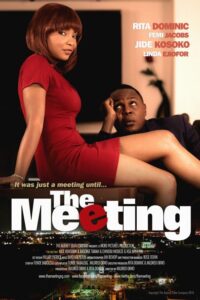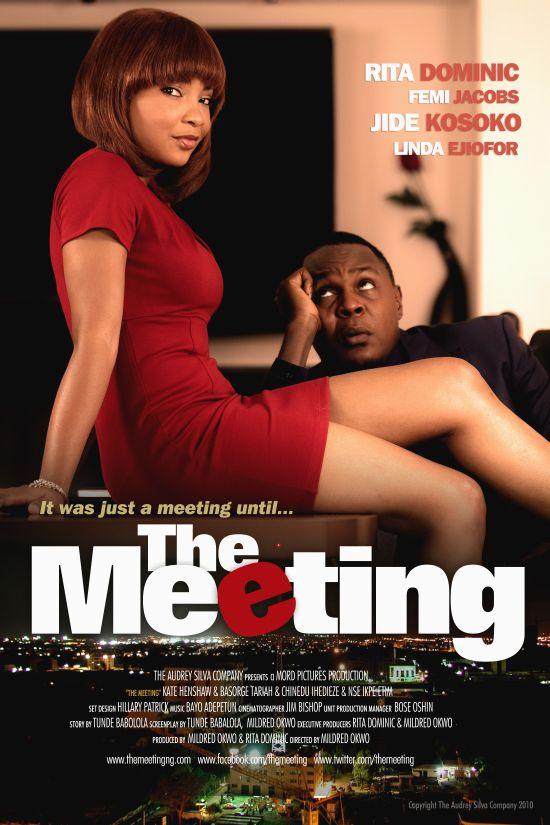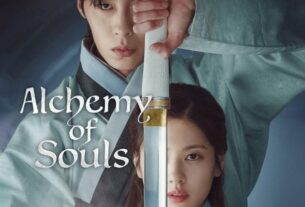
The Meeting is a delightful Nigerian romantic comedy directed by Mildred Okwo and co-produced by Rita Dominic and Mildred Okwo. The film masterfully combines humor, romance, and social commentary, offering an engaging critique of government bureaucracy while telling a heartwarming story of love, ambition, and perseverance. With its sharp wit and relatable characters, The Meeting is a standout in Nollywood, showcasing the industry’s ability to tackle pressing societal issues with humor and charm.
The plot follows Makinde Esho (Femi Jacobs), a polished and determined corporate executive who travels to Abuja to secure government approval for a critical business project. What should have been a straightforward task turns into a labyrinth of delays and inefficiencies, largely thanks to the formidable Clara Ikemba (Rita Dominic), the minister’s gatekeeper. Clara’s exacting demeanor and unflappable control over her domain encapsulate the frustrations of navigating Nigeria’s often-complex bureaucratic systems. Makinde’s increasingly exasperated attempts to bypass her create a comedic tension that forms the backbone of the story.
Amid the chaos, Makinde meets Ejura (Linda Ejiofor), a spirited and empathetic NGO secretary who shares his frustrations with the system. Their budding romance adds an emotional layer to the narrative, offering moments of hope and connection amid the absurdity of their shared struggles. Ejura’s optimism and idealism stand in stark contrast to Clara’s rigid authority and Makinde’s growing impatience, creating a compelling dynamic that drives the story forward.
The performances in The Meeting are a highlight, with Femi Jacobs bringing nuance and relatability to Makinde, a man striving to maintain his composure in an increasingly maddening situation. Rita Dominic shines as Clara Ikemba, delivering a performance that is both comedic and commanding, making her character a memorable antagonist. Linda Ejiofor’s portrayal of Ejura is equally captivating, infusing the film with warmth and humanity that balances its satirical edge.
Visually, the film captures the hustle and bustle of Abuja, using its setting to enhance the story’s authenticity and humor. The production design and cinematography reflect the contrasts between Makinde’s corporate world and the government offices he must navigate, emphasizing the disparities in efficiency and culture. The film’s score and soundtrack complement its tone, blending lighthearted melodies with moments of emotional depth.
Beneath its comedic surface, The Meeting offers sharp insights into the challenges of navigating bureaucratic inefficiency in Nigeria, highlighting how such systems impact individuals on both professional and personal levels. It explores themes of resilience, the pursuit of success, and the delicate balance between ambition and love. The juxtaposition of Makinde’s corporate efficiency with Clara’s meticulous yet obstructive authority serves as a metaphor for larger societal tensions, making the film both entertaining and thought-provoking.
Praised for its clever writing, strong performances, and relatable themes, The Meeting has cemented its place as a Nollywood classic. It strikes a perfect balance between humor and depth, using its romantic and comedic elements to shed light on broader societal issues. Its enduring appeal lies in its ability to resonate with audiences, offering a universal story of perseverance and connection while providing a uniquely Nigerian perspective.
With its engaging blend of romance, humor, and social critique, The Meeting remains a beloved entry in Nigerian cinema, celebrated for its wit, authenticity, and heart.




